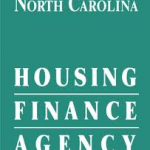 There is some good news for affordable housing advocates in a time of political polarization and partisan rancor: strong bipartisan support in both the U.S. House of Representatives and the Senate for The Affordable Housing Credit Improvement Act (AHCIA), introduced earlier this year as S.1557 and H.R. 3238.
There is some good news for affordable housing advocates in a time of political polarization and partisan rancor: strong bipartisan support in both the U.S. House of Representatives and the Senate for The Affordable Housing Credit Improvement Act (AHCIA), introduced earlier this year as S.1557 and H.R. 3238.
Advocates report that this legislation has broad bipartisan support and that nearly half of all members of Congress, members from both parties in both chambers have signed on a cosponsors of the legislation. Both of North Carolina’s Republican Senators, Ted Budd and Thom Tillis, have cosponsored the Senate bill and at least eight members of the House from the North Carolina delegation, 4 Democrats and 4 Republicans, are cosponsors of the House bill as of July 28, 2023.
The Affordable Housing Tax Credit Coalition claims that passing the AHCIA is “the single most important Congress can take to address our nation’s affordable housing supply crisis.” The Coalition estimates that nearly 2 million additional affordable homes could be financed in the U.S. over the next decade if Congress were to enact the primary unit financing provisions in the proposed law. Passing the new law also is estimated to generate 3 million jobs, $115 billion in additional tax revenue and $333 billion in wages and business income.
The AHCIA would also help address a critical affordable housing shortage in North Carolina. A Cato Institute study published in December 2022 notes that North Carolina needs 900,000 additional homes over the next 10 years to meet the demands of a growing population. Affordable housing and workforce housing is not only a housing issue, but an “access to talent issue.” A 2021 survey of local small businesses in western North Carolina noted by the Cato study emphasized the “pressing need for more affordable housing. Local businesses directly connected this issue to the challenges of being able to find workers and pay living wages.”
Members of the North Carolina General Assembly also have introduced a number of bills in the current legislative session to address the workforce housing crisis and to authorize cities and counties to provide for more workforce housing, inclusionary zoning for small housing units, cottage homes and accessory dwelling units. Legislation also would continue to fund the North Carolina Housing Finance Agency’s workforce housing loan program.![]()
 I have often in my law practice advised my clients that the first rule of contracts is: “Read the contract!” Now, after a recent North Carolina Court of Appeals decision, I can emphatically say that it is their legal duty to read the contract before they sign it.
I have often in my law practice advised my clients that the first rule of contracts is: “Read the contract!” Now, after a recent North Carolina Court of Appeals decision, I can emphatically say that it is their legal duty to read the contract before they sign it. More than $1 billion in new economic investment is coming soon to build and preserve affordable housing in North Carolina, according to Chris Austin, Director of Rental Investment for the North Carolina Housing Finance Agency.
More than $1 billion in new economic investment is coming soon to build and preserve affordable housing in North Carolina, according to Chris Austin, Director of Rental Investment for the North Carolina Housing Finance Agency. Ellinger Carr is a business law and commercial real estate law firm based in Raleigh, North Carolina. Ellinger Carr lawyers are experienced and knowledgeable counselors, transaction specialists and business problem solvers, admitted to practice in North Carolina, South Carolina, Florida, Louisiana and New York. For assistance in affordable housing, commercial real estate and corporate and business development matters, call 919-785-9998 or email Susan Ellinger at
Ellinger Carr is a business law and commercial real estate law firm based in Raleigh, North Carolina. Ellinger Carr lawyers are experienced and knowledgeable counselors, transaction specialists and business problem solvers, admitted to practice in North Carolina, South Carolina, Florida, Louisiana and New York. For assistance in affordable housing, commercial real estate and corporate and business development matters, call 919-785-9998 or email Susan Ellinger at  Lyndon Johnson came to speak to an extraordinary joint session of the House of Representatives and the Senate. He was seeking to persuade the Congress to adopt legislation that came to be called the Voting Rights Act of 1965. The speech, delivered on March 15, 1965, occurred just a few days after the Selma “Bloody Sunday” march on March 6.
Lyndon Johnson came to speak to an extraordinary joint session of the House of Representatives and the Senate. He was seeking to persuade the Congress to adopt legislation that came to be called the Voting Rights Act of 1965. The speech, delivered on March 15, 1965, occurred just a few days after the Selma “Bloody Sunday” march on March 6.
 In the law of North Carolina, contracting parties are expected to exercise their discretion “in a reasonable manner based on good faith and fair play.” What does “reasonable” mean? I read a lot of statutes and court decisions to get a practical definition, and sometimes I get good instruction on Sunday mornings. I rely on my learned pastor for theology, religious instruction, and often for new insights gained from her skillful use of words. In one of her recent sermons, she noted that “to be reasonable is to be logically consistent.” That rings true. But what does “logically consistent” mean? Logic is defined as a branch of philosophy concerned with analyzing the patterns of reasoning by which a conclusion is properly drawn from a set of premises, or a system or principles of argument or reasoning.
In the law of North Carolina, contracting parties are expected to exercise their discretion “in a reasonable manner based on good faith and fair play.” What does “reasonable” mean? I read a lot of statutes and court decisions to get a practical definition, and sometimes I get good instruction on Sunday mornings. I rely on my learned pastor for theology, religious instruction, and often for new insights gained from her skillful use of words. In one of her recent sermons, she noted that “to be reasonable is to be logically consistent.” That rings true. But what does “logically consistent” mean? Logic is defined as a branch of philosophy concerned with analyzing the patterns of reasoning by which a conclusion is properly drawn from a set of premises, or a system or principles of argument or reasoning. Let us choose to settle the matter. Let us choose to seek each other out, and to learn from, and to listen to, each other, to employ science and to make good decisions, in order to preserve and unify and rescue our country and our fellow citizens. Let us learn, and reason, and seek to persuade each other and our elected leaders about how we can best achieve the most powerful and effective solutions to common problems and agree on the most effective ways to defeat our common enemies.
Let us choose to settle the matter. Let us choose to seek each other out, and to learn from, and to listen to, each other, to employ science and to make good decisions, in order to preserve and unify and rescue our country and our fellow citizens. Let us learn, and reason, and seek to persuade each other and our elected leaders about how we can best achieve the most powerful and effective solutions to common problems and agree on the most effective ways to defeat our common enemies.
 North Carolina and Wake County are continuing to keep pace and to set the pace of residential real estate development in spite of months of coronavirus pandemic, and we are bucking the reported slowdown of affordable housing construction elsewhere in the United States, as reported by a recent Bloomberg News article (July 30, 2020), “COVID-19 is Killing Affordable Housing, Just as It’s Needed Most.”
North Carolina and Wake County are continuing to keep pace and to set the pace of residential real estate development in spite of months of coronavirus pandemic, and we are bucking the reported slowdown of affordable housing construction elsewhere in the United States, as reported by a recent Bloomberg News article (July 30, 2020), “COVID-19 is Killing Affordable Housing, Just as It’s Needed Most.” Amid news of more than 1.5 million new jobless claimants in the United States this week filing for unemployment assistance, and word that 20 or more States, including North Carolina, are experiencing a new spike in COVID-19 cases, North Carolina legislative leaders are responding with legislation that will provide emergency grant assistance to keep people in their homes, with foreclosure, rental assistance and help with utility bills.
Amid news of more than 1.5 million new jobless claimants in the United States this week filing for unemployment assistance, and word that 20 or more States, including North Carolina, are experiencing a new spike in COVID-19 cases, North Carolina legislative leaders are responding with legislation that will provide emergency grant assistance to keep people in their homes, with foreclosure, rental assistance and help with utility bills. We are also monitoring and we support passage of House Bill 1208 which would provide an additional $20 million in funding for the North Carolina Housing Finance Agency for the Workforce Housing Loan Program. If this legislation is passed, the Loan Program funds appropriated would be allocated during the 2020 housing credit award cycle. These funds are vital to supporting and increasing the number of affordable rental workforce housing units available to low and moderate income individuals and families in North Carolina. This bill is sponsored by Representative Donny Lambeth, R-District 75, Winston-Salem/Forsyth County, and may be on the legislative calendar this week.
We are also monitoring and we support passage of House Bill 1208 which would provide an additional $20 million in funding for the North Carolina Housing Finance Agency for the Workforce Housing Loan Program. If this legislation is passed, the Loan Program funds appropriated would be allocated during the 2020 housing credit award cycle. These funds are vital to supporting and increasing the number of affordable rental workforce housing units available to low and moderate income individuals and families in North Carolina. This bill is sponsored by Representative Donny Lambeth, R-District 75, Winston-Salem/Forsyth County, and may be on the legislative calendar this week. The great need of safe, decent and affordable housing is being addressed by legislators and city leaders in the Carolinas, and more work needs to be done.
The great need of safe, decent and affordable housing is being addressed by legislators and city leaders in the Carolinas, and more work needs to be done. Susan Ellinger will be speaking and leading a housing law presentation on November 15, 2019 in Florence, South Carolina. The Florence meeting is a gathering of the South Carolina Housing Authority Executive Directors. Susan, a lawyer and Ellinger Carr founding member, is also former Housing Authority executive. She will be advising the South Carolina executive directors on new developments in fair housing, domestic violence and requirements of the Violence Against Women Act, due process rights, housing authority leases and lease enforcement, and training of Authority staff on all of these legal issues and matters. Susan and other Ellinger Carr lawyers represent and advise Housing Authorities in North Carolina and South Carolina.
Susan Ellinger will be speaking and leading a housing law presentation on November 15, 2019 in Florence, South Carolina. The Florence meeting is a gathering of the South Carolina Housing Authority Executive Directors. Susan, a lawyer and Ellinger Carr founding member, is also former Housing Authority executive. She will be advising the South Carolina executive directors on new developments in fair housing, domestic violence and requirements of the Violence Against Women Act, due process rights, housing authority leases and lease enforcement, and training of Authority staff on all of these legal issues and matters. Susan and other Ellinger Carr lawyers represent and advise Housing Authorities in North Carolina and South Carolina. Steven Carr, one of the Ellinger Carr lawyers, will be a featured speaker and presenter at an upcoming seminar designed for lenders, loan officers, accountants, paralegals and lawyers on the topic of business acquisitions and helping clients buy and sell businesses. The program is sponsored by the National Business Institute and will be conducted at the Holiday Inn North-Midtown in Raleigh on Monday, December 16. For more information about the seminar, or to register for this program, call NBI at 800-930-6182 or log in at www.nbi-sems.com, or contact our office about how to register for the program.
Steven Carr, one of the Ellinger Carr lawyers, will be a featured speaker and presenter at an upcoming seminar designed for lenders, loan officers, accountants, paralegals and lawyers on the topic of business acquisitions and helping clients buy and sell businesses. The program is sponsored by the National Business Institute and will be conducted at the Holiday Inn North-Midtown in Raleigh on Monday, December 16. For more information about the seminar, or to register for this program, call NBI at 800-930-6182 or log in at www.nbi-sems.com, or contact our office about how to register for the program. A new, multifamily affordable housing community providing homes and serving 80 families and individuals in the Wakefield community of Raleigh celebrated its grand opening on July 27.
A new, multifamily affordable housing community providing homes and serving 80 families and individuals in the Wakefield community of Raleigh celebrated its grand opening on July 27.